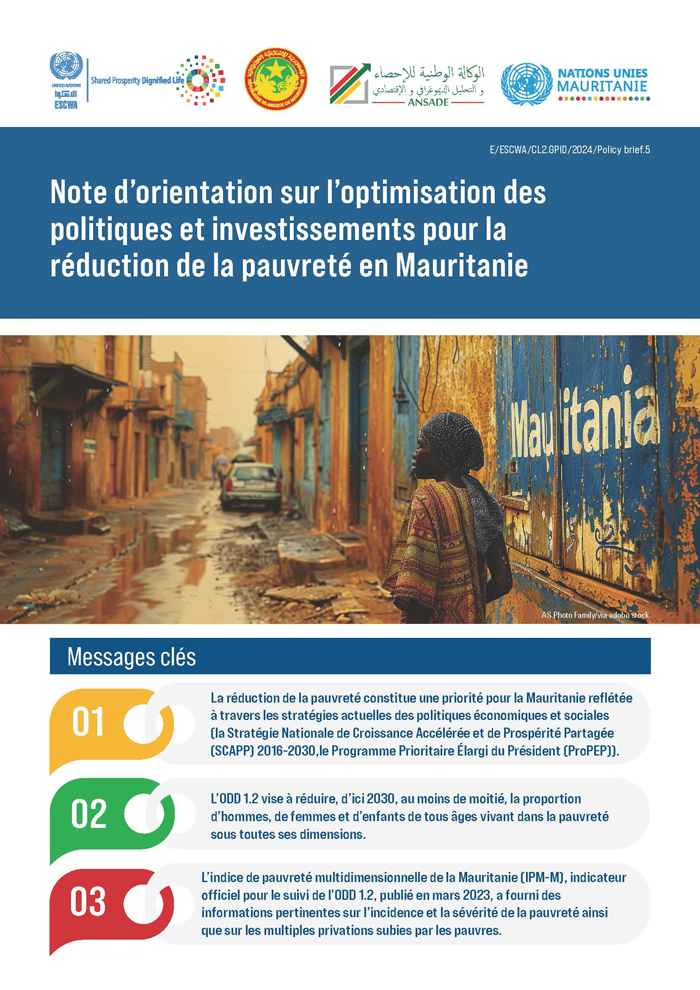
ESCWA Publication: E/ESCWA/CL2.GPID/2024/Policy brief.10
Country: Arab region, People’s Democratic Republic of Algeria, Arab Republic of Egypt, Republic of Iraq, Hashemite Kingdom of Jordan, State of Kuwait, Lebanese Republic, Kingdom of Morocco, State of Palestine, Kingdom of Saudi Arabia, Republic of Tunisia
Publication Type: Policy briefs
Cluster: Gender Justice, Population and Inclusive Development
Focus Area: Gender equality, Inclusive development
Initiatives: Beijing Declaration and Platform for Action, Reducing inequalities, Arab Digital Inclusion Platform, Promoting social justice
SDGs: Goal 5: Gender Equality, Goal 10: Reduced Inequalities
Keywords: Agricultural cooperatives, Algeria, Arab countries, Cooperative housing, Cooperatives, Solidarity, Economic aspects, Economic development, Egypt, Employment creation, Empowerment, Gender discrimination, Iraq, Jordan, Kuwait, Lebanon, Morocco, Recommendations, Saudi arabia, Social aspects, Social security, State of palestine, Tunisia
Social and solidarity economy as an engine for socioeconomic inclusion
December 2024
The Social and Solidarity Economy (SSE) is playing an increasingly important role in shaping the economic landscape in the Arab region. It has the potential to significantly contribute to socioeconomic inclusion, the well-being of communities, and sustainable development, particularly by facilitating the integration of vulnerable individuals into the labour market, stimulating decent employment opportunities, enhancing economic empowerment and promoting gender equality. SSE entities, such as cooperatives and social enterprises, can play a key role in fostering the transition from the informal to the formal economy, promoting social cohesion, and driving job creation.
Despite the recent growth of SSE in the Arab region and its promising impact, the sector faces numerous regulatory obstacles, including the absence of supportive policy environments and comprehensive frameworks. While Tunisia has a comprehensive SSE legal framework, other countries such as Jordan, Lebanon and Morocco require more robust policies and regulatory and legislative frameworks to prevent fragmentation and overcome challenges. SSE initiatives can effectively address housing, employment, and agricultural sustainability challenges, with cooperatives playing a significant role in sectors like agriculture and housing. Scaling up SSE requires stronger legal support and regulatory frameworks, efficient data collection, awareness-raising campaigns, and capacity-building programmes.
Related content
Gender equality
, Inclusive development
,
The Social and Solidarity Economy (SSE) is playing an increasingly important role in shaping the economic landscape in the Arab region. It has the potential to significantly contribute to socioeconomic inclusion, the well-being of communities, and sustainable development, particularly by facilitating the integration of vulnerable individuals into the labour market, stimulating decent employment opportunities, enhancing economic empowerment and promoting gender equality. SSE entities, such as cooperatives and social enterprises, can play a key role in fostering the transition from the informal to the formal economy, promoting social cohesion, and driving job creation.
Despite the recent growth of SSE in the Arab region and its promising impact, the sector faces numerous regulatory obstacles, including the absence of supportive policy environments and comprehensive frameworks. While Tunisia has a comprehensive SSE legal framework, other countries such as Jordan, Lebanon and Morocco require more robust policies and regulatory and legislative frameworks to prevent fragmentation and overcome challenges. SSE initiatives can effectively address housing, employment, and agricultural sustainability challenges, with cooperatives playing a significant role in sectors like agriculture and housing. Scaling up SSE requires stronger legal support and regulatory frameworks, efficient data collection, awareness-raising campaigns, and capacity-building programmes.



